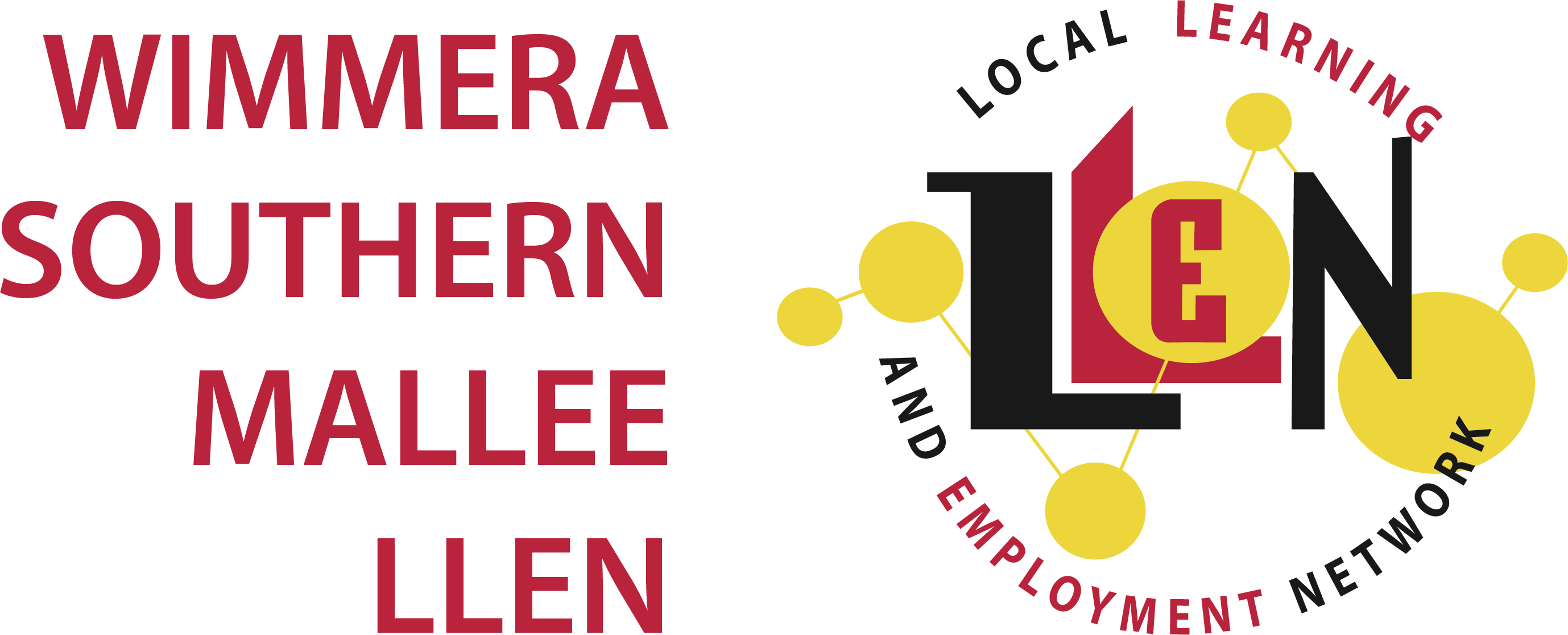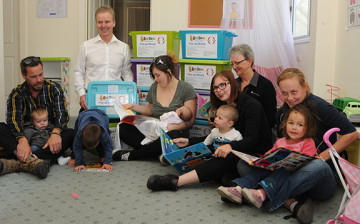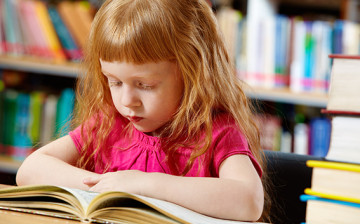Global Pop-up Trend
The Wimmera is at the forefront of a global ‘Pop-Up’ trend with the creation of Pop-Up libraries across the region. The first Pop-Up library in Horsham is located at Wimmera Uniting Care’s Early Parenting Centre in Darlot St.
Pop-Up libraries take books to the people. They will be located in places where families go, including playgroups, shops, Maternal and Child Health centres and waiting rooms. Children and families can take a book, enjoy reading it and then return it to any Pop-Up library in the town.
The books for the Pop-Up libraries were donated by Horsham and district residents through a Let’s Read book drive. The book drive was suggested by Horsham Rural City Councillor, Robin Barber. Donation bins were set up by the shire at the shire offices, Horsham library and the Horsham Plaza. More than 740 children’s books were donated. Another 200 books were purchased from the recent Horsham College book fair. The Wimmera Southern Mallee LLEN has sorted and branded the books and set up the Pop-Up library tubs for use throughout the shire.
The first Pop-Up libraries were successfully set up in Warracknabeal early in 2015 by the Warracknabeal Oral Reading Development Strategy (WORDS) group. The Wimmera wide Pop- up libraries are an initiative of the Let’s Read programs set up in the Hindmarsh, Horsham, West Wimmera and Yarriambiack Shires.
Coordinator at the Early Parenting Centre Wendy Brown said “This will be great for our families. We read books to the children every day and they will now be able to take their favourite book home to read. Reading and talking to children is really important for their development.”
The Pop-Up libraries will ensure that all families have access to a wide range of books. They will also increase the community’s awareness of the importance of reading daily to children.
The Let’s Read program provides families with a Let’s Read bag at 4 different child age points. The bag contains a new book, a ‘read aloud’ DVD, a reading tips sheet, a recommended book list and a Library flyer. Families receive the resources and support from Maternal and Child Health Nurses for their children at 4 months, 12 months, 18 months and 3 ½ years.
Let’s Read is an early years literacy program designed to support families to read to their children from birth to improve their language and literacy development. The program was developed by the Centre for Community Child Health at the Royal Children’s Hospital Melbourne. The Murdoch Children’s Research Institute and The Smith Family have partnered to implement Let’s Read with communities across Australia.
Pop Up libraries will be progressively rolled out to Wimmera Southern Mallee communities in the new year. It is an exciting initiative that will see thousands of books made available to all families in the region. This initiative will encourage families to join their local library and access the wide range of books, DVDs, CDs and online resources available at no cost.


